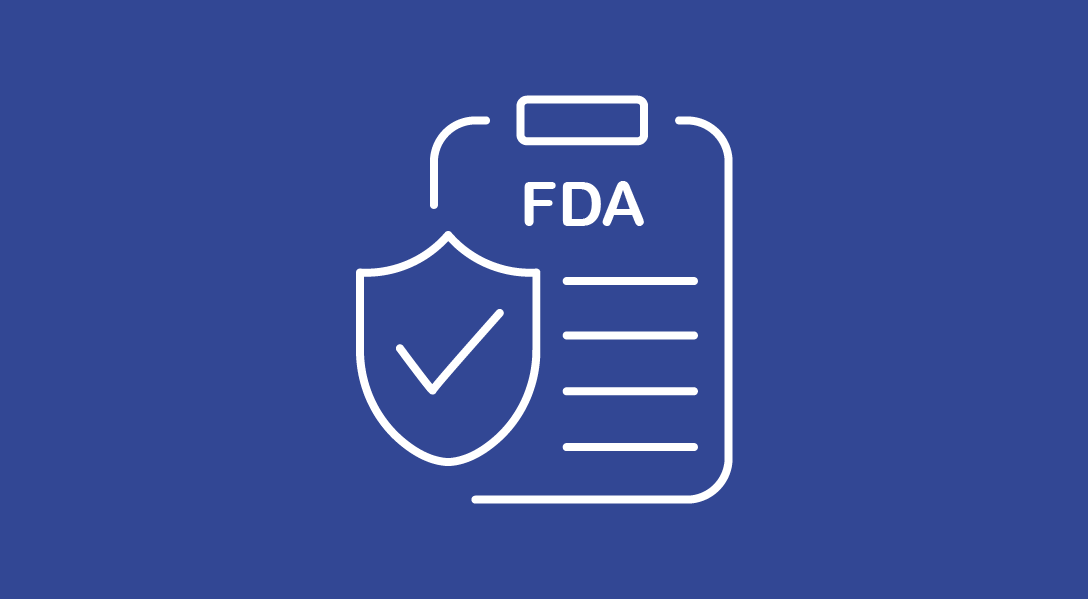Cosibelimab BLA Resubmitted for Locally Advanced, Metastatic CSCC
The resubmission of the biologics license application for cosibelimab for locally advanced or metastatic cutaneous squamous cell carcinoma follows a complete response letter from the FDA in December 2023.
Cosibelimab BLA Resubmitted for Locally Advanced, Metastatic CSCC

The FDA received a resubmission of the biologics license application (BLA) for cosibelimab (CK-301) as a potential treatment for locally advanced or metastatic cutaneous squamous cell carcinoma (CSCC) who are not candidates for curative surgery or curative radiation.1
The BLA resubmission follows a complete response letter (CRL) issued by the FDA in December 2023, which cited issues after a multi-sponsor inspection of a third-party contract manufacturing organization. The CRL did not identify any concerns regarding the clinical data package, safety, or labeling of cosibelimab.2
Checkpoint Therapeutics, the developer of cosibelimab, announced that it recently aligned with the FDA on a strategy to address the deficiencies detailed in the CRL, prompting the resubmission of the BLA.1
The BLA resubmission is based on data from the CSCC cohort of a phase 1 trial (NCT03212404), which showed that at a median follow-up of 15.4 months (range, 0.4-40.5), cosibelimab elicited an objective response rate (ORR) of 47.4% (95% CI, 36.0%-59.1%) in patients with metastatic CSCC (n = 78). The complete response rate was 7.7%, and the partial response rate was 39.7%. The rates of stable disease and progressive disease were 15.4% and 26.9%, respectively, and 10.3% of patients were not evaluable for response.3
The median duration of response (DOR) was not reached (range, 1.4+ months to 34.1+ months), and responses were ongoing in 73.0% of patients at the time of data cutoff. The estimated 6- and 12-month DOR rates were 88.9% (95% CI, 73.1%-95.7%) and 73.0% (95% CI, 54.2%-85.0%), respectively.
The first-in-human, open-label, multicenter, dose-escalation trial investigated cosibelimab—a PD-L1 antibody—in patients with recurrent or metastatic cancers. Patients with CSCC were required to have histologically confirmed unresectable or metastatic disease that was not amenable to local therapy. All patients were required to have an ECOG performance status of 0 or 1; at least 1 measurable lesion per RECIST 1.1 criteria; and adequate hematological, hepatic, and renal function.4
Patients were excluded if they received prior treatment with an anti–PD-1, –PD-L1, –PD-L2, --CD137, or –CTLA-4 antibody; received chemotherapy, biological cancer therapy, or TKI therapy within 4 weeks prior to the first dose of study drug; had active or a history of interstitial lung disease, or a history of pneumonitis requiring steroids; or had active, suspected, or a history of autoimmune disease.
Within the CSCC cohort, all patients received 800 mg of intravenous cosibelimab once every 2 weeks.3
ORR served as the trial’s primary end point. Secondary end points included DOR and safety.
Additional data from an exploratory subgroup analysis showed that the ORR was 45.9% among evaluable patients with PD-L1–positive disease (n = 37). Notably, the ORR was 44.4% in evaluable patients with PD-L1–negative CSCC (n = 18).
Regarding safety, 11.5% of patients discontinued treatment with cosibelimab due to adverse effects (AEs); however, 2.6% of patients discontinued treatment due to AEs considered related to the agent.
Any-grade treatment-emergent AEs (TEAEs) occurred in 97.4% of patients, and 52.6% experienced grade 3 or higher TEAEs. The most common TEAEs reported in more than 10% of patients included fatigue (any-grade, 26.9%; grade ≥3, 2.6%), rash (16.7%; 1.3%), anemia (15.4%; 6.4%), constipation (14.1%; 0%), diarrhea (14.1%; 0%), nausea (12.8%; 0%), hypercalcemia (11.5%; 1.3%), hyponatremia (11.5%; 2.6%), localized infection (11.5%; 1.3%), peripheral edema (11.5%; 0%), arthralgia (10.3%; 0%), cellulitis (10.3%; 1.3%), cough (10.3%; 0%), insomnia (10.3%; 0%), and pruritus (10.3%; 0%).
Additionally, 3.8% of patients died due to AEs, which were all considered unrelated to cosibelimab. Two patients died of a COVID-19–related illness, and 1 patient with a history of cardiovascular disease died due to cardiac arrest.
Grade 3 treatment-related AEs (TRAEs) occurred in 10.3% of patients; however, no grade 4 or 5 TRAEs were reported.
References
- Checkpoint Therapeutics announces biologics license application resubmission for cosibelimab. News release. Checkpoint Therapeutics. July 2, 2024. Accessed July 2, 2024. https://ir.checkpointtx.com/news-events/press-releases/detail/119/checkpoint-therapeutics-announces-biologics-license
- US Food and Drug Administration issues complete response letter for cosibelimab solely due to inspection findings at third-party manufacturer. News release. Checkpoint Therapeutics, Inc. December 18, 2023. Accessed July 2, 2024. https://ir.checkpointtx.com/news-events/press-releases/detail/111/u-s-food-and-drug-administration-issues-complete-response
- Clingan P, Ladwa R, Brungs D, et al. Efficacy and safety of cosibelimab, an anti-PD-L1 antibody, in metastatic cutaneous squamous cell carcinoma. J Immunother Cancer. 2023;11(10):e007637. doi:10.1136/jitc-2023-007637
- Phase 1 study of CK-301 (cosibelimab) as a single agent in subjects with advanced cancers. ClinicalTrials.gov. Updated August 29, 2023. Accessed July 2, 2024. https://clinicaltrials.gov/study/NCT03212404


